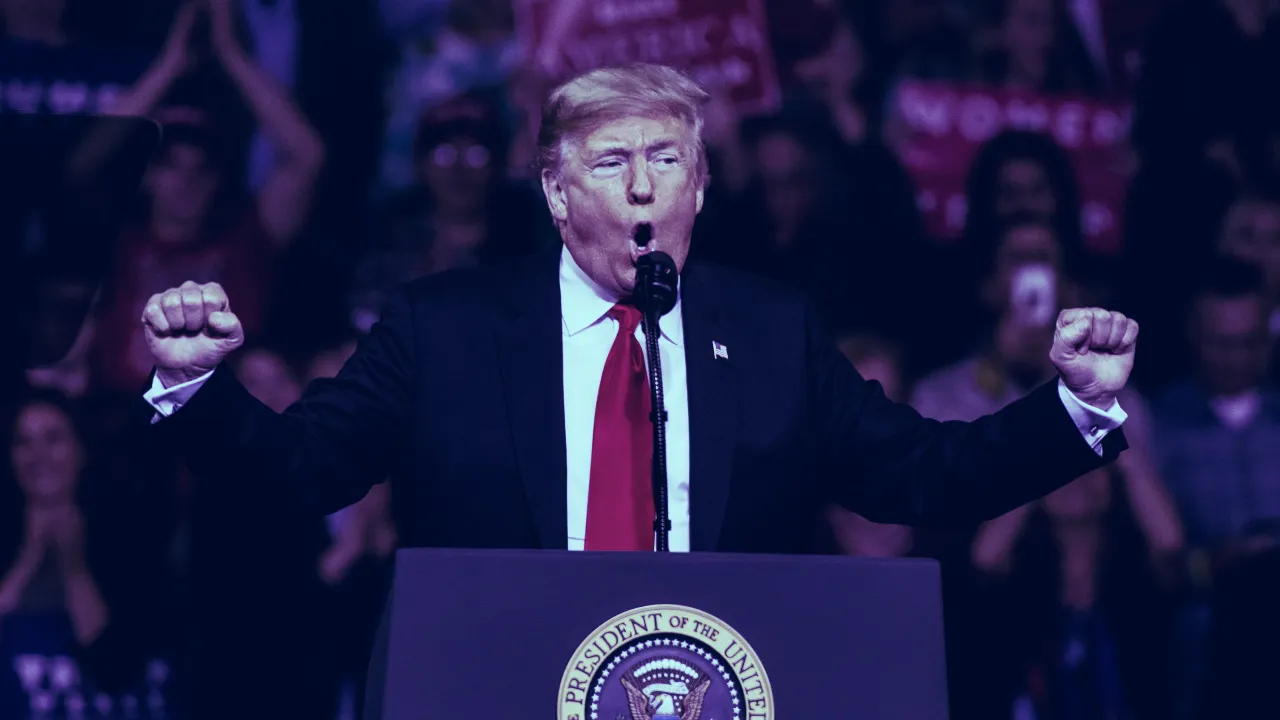In brief
- Twitter partially hid one of President Trump's tweets for glorifying violence last week.
- The same tweet, made by a different user, earned the account a temporary suspension.
- The incident proves that Twitter is considering the identity of the speaker, not just the content of the speech, when enforcing its rules.
When Twitter chose to hold President Trump to account for the platform's rules last week, many argued the platform was enforcing those rules unevenly. As it turns out, the platform is unevenly applying its rules against the glorification of violence—to Trump's benefit.
Last week, Twitter twice went out of its way to moderate President Trump's tweets. In the first instance, the president made unsubstantiated claims that mail-in ballots for the general election would be "fraudulent" and the election would be "rigged." Twitter added a blue exclamation point underneath the tweets that read "Get the facts about mail-in ballots."
Later last week, referring to civil unrest in the wake of George Floyd's death while in police custody, President Trump tweeted "when the looting starts, the shooting starts."
The social media platform this time didn't fact-check the tweet, but hid it, similar to how it hides adult content behind a curtain. Users received a warning that the "Tweet violated the Twitter Rules about glorifying violence" but that "it may be in the public's interest for the Tweet to remain accessible." Users could see the tweet by clicking a button.
The owner of the account @SuspendThePres received different treatment. That account is based on an experiment in which the account owner manually copies and tweets out the president's tweets as his own to see if Twitter would suspend the account.
It did.
Within two days of @SuspendThePres posting President Trump's looting warning, the platform limited the account—prohibiting it from tweeting, retweeting, following new users, or liking other tweets—citing the post's glorification of violence. To get back in Twitter's good graces, the user had to remove the tweet and then wait 12 hours.
Of course, Twitter's decision to contain political speech—even if baseless or violent—set off a debate, though one that is temporarily subsumed within a larger political firestorm.
It temporarily made Section 230—a part of the Communications Decency Act that provides internet companies with protections for restricting access to objectionable or violent content—a household term.
Anderson Kill partner Preston Byrne, writing on his personal blog in 2019, partially summarized Section 230: "If a web app moderates any of your content off of their platform, and you sue them for it, you're going to lose."
Nonetheless, the president complained that his free speech was being violated and his surrogates claimed 230 has been misinterpreted. Given legal precedent, it's a dubious argument that nonetheless has high-profile supporters, among them Texas Senator Ted Cruz.
The debate has been catnip for cryptocurrency and blockchain advocates, some of whom looked upon the company's rights to moderate and wished to shift more power to users. Ethereum co-creator Vitalik Buterin tweeted his skepticism that centralized platforms could stand above politics.
As it turns out, politics is a constraining factor. The public needs to remain informed about the president's tweets because he's a public figure. His words impact how people would vote. Moderating splits the difference between a ban and unfettered speech.
In other words, when a rando on the Internet tweets it, it's violent. But when the president does it, it's news.
Daily Debrief Newsletter
Start every day with the top news stories right now, plus original features, a podcast, videos and more.

